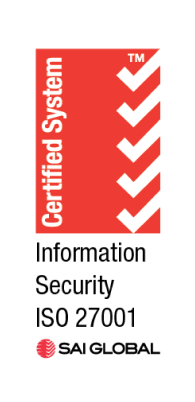The pandemic demonstrated that people with PCs can work just as effectively at home as in the office. Desktop IT now needs a rethink.
In many ways, he said senior management would like people back in the office, but the pandemic has shown that many people can work effectively from home. “Employees essentially do not want to go to the office, so there is an ongoing debate about a hybrid approach,†he said, adding that businesses need to figure out what hybrid means in their organisation. For Atwal, it’s certainly not about having people sit at desks to do the same job they could just as easily do at home.
In Europe, where face-to-face interaction remains a preference, the hybrid style of work is projected to increase in 2023. In Germany, fully remote and hybrid knowledge workers will account for 49% of the German workforce in 2023. Given their cultural and vertical industry mix, the number of fully remote and hybrid knowledge workers in the UK will be on the rise over the same period.
The working population is also getting younger, and people are finding it unaffordable to live a short commute from the office. Gartner’s research found that rigid hybrid work patterns such as the “3-2 models†(for example, every Tuesday, Wednesday and Thursday working in the office, and the other days working from home) can result in reduced performance.
In an environment seeing potential recession and inflation, employees will want to reduce their commute costs and be less willing to come into the office. On the other hand, Gartner said increased utility bills may result in some employees actually returning to the office, but some employers may also try to save costs by encouraging employees to work from home.
Atwal said that while employees are looking for flexibility, “they need to come to the office as wellâ€. This requires organisations to use what Gartner describes as “human-centric designâ€, where organisations establish a new set of principles, norms and thinking. A human-centric approach allows employers to meet their targets independent of the employee’s work location.
For instance, Gartner predicted that successful virtual workspaces will increase the ability to hire and bring together employees regardless of geographic location. Virtual workspaces provide potentially disruptive new alternatives to in-person meetings (and the associated travel) and to existing, virtual meeting services. Gartner’s research forecasts that by 2025, 10% of workers will use virtual spaces for activities such as sales, onboarding and working remotely.
By the end of 2026, the democratisation of technology combined with digitisation and automation of work will mean 64% of employees are in a position to work remotely or in a hybrid fashion.
The research, published in Gartner’s forecast analysis on knowledge works, hybrid, fully remote and on-site work, notes that investments in new technologies such as automation or artificial intelligence (AI) can change the nature of many existing roles. “These technologies cut down on time-intensive route tasks that limit flexible scheduling and/or must be performed in the office,†the authors of the forecast analysis wrote.
For instance, AI can be used to answer routine employee questions for HR or IT on a 24/7 basis. Gartner said that augmented reality and virtual reality headsets offer organisations the ability to run immersive brainstorming sessions for fully remote teams. These use cases, according to Gartner, challenge assumptions that highly collaborative jobs must always or often be performed on-site.
The impact on IT is that IT departments will need to reconsider how the IT helpdesk operates and what devices employees need. Atwal said employees working from home are becoming more tech-savvy and competent enough to fix issues with their PCs that, previously, would have prevented them from working. Going forward, the corporate portal and enterprise app store could be populated with scripts and macros to enable users to fix software issues on their computers themselves, without having to come into the office.
On the hardware side, Atwal said many enterprise applications are accessed via a browser, which means the physical processor, memory and storage of the PC device being used are less important. “As more applications are sitting somewhere else and are not installed on the device, optimisation of the PC becomes less important,†he said, adding that IT leaders should consider all aspects of end-user computing, such as whether to invest in a larger screen and deploying full-sized keyboard and mouse devices for home workers.





